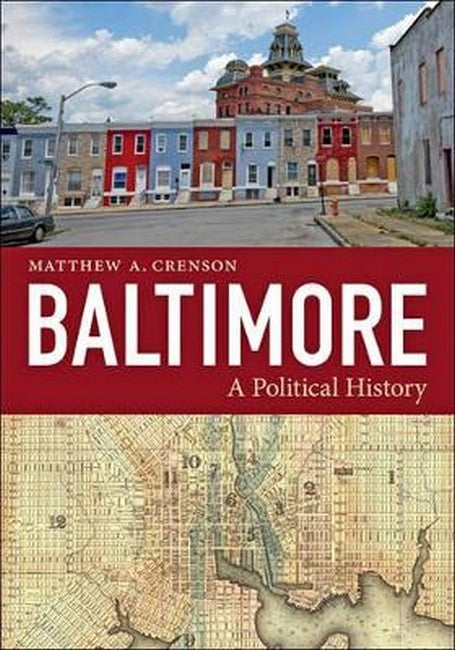Matthew A. Crenson is professor emeritus of political science at Johns Hopkins University. He is the author of Neighborhood Politics and the coauthor of Downsizing Democracy: How America Sidelined Its Citizens and Privatized Its Public.
Request Academic Copy
Please copy the ISBN for submitting review copy form
Description
Prologue Part I 1. Settling 2. Government in the Streets 3. Revolution Part II 4. Baltimore at War 5. From Town to City 6. "Calamities Peculiarly Incident to Large Cities" Part III 7. Trial by Combat 8. Baltimore Triumphant 9. Public Debt and Internal Improvements Part IV 10. Working on the Railroad 11. Corporate Challenge to Equality and an Educational Response 12. Road Hogs 13. Policing the Disorderly City Part V 14. Racial Borders 15. Between Mobs and Corporations 16. Pigs and Politicians 17. Know-Nothings Part VI 18. American Party Reckoning 19. Baltimore in the Divided Nation 20. City at War 21. Democratic Resurrection Part VII 22. Ex-Slaves, Ex-Confederates, and the New Regime 23. The Ring 24. Fin de Siecle 25. Political Economy Part VIII 26. Fire, Smoke, and Segregation 27. Metropolitan Morality 28. World War and Municipal Conquest 29. Civil Service and Prohibition Part IX 30. Boom to Bust 31. Relief, Repeal, New Deal 32. Democratic Harmony, RepublicanVictory 33. D'Alesandro and His Democrats Part X 34. I'm All Right, Jack 35. Slow-Motion Race Riot 36. Racial Breakdown Part XI 37. Baltimore's Best 38. Driving the City 39. Turning Point Afterword Acknowledgments Appendix A Appendix B Notes Bibliographic Essay Index
This is a magnificent study, sweeping in scope and rich in detail . . . There is much to learn from the Baltimore experience, and this gracefully written volume tells the tale well. Highly recommended. -Choice Matthew A. Crenson takes readers on an exhilarating ride through more than two centuries of American history. With lucid prose, rapid pacing, and a parade of dramatic incidents, he addresses the critical issues that have confounded citizens and historians since the nation's founding. -Journal of American History A comprehensive look at the manifold forces that influenced and impeded city government for more than 300 years. Crenson also possesses a keen eye-and nose-for the two-way traffic between politics and the body politic. He scrapes away charm (and myth) to expose less savory features of civic history. -Johns Hopkins University Arts & Sciences Magazine

